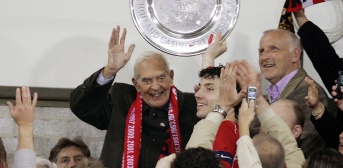Club
Overview
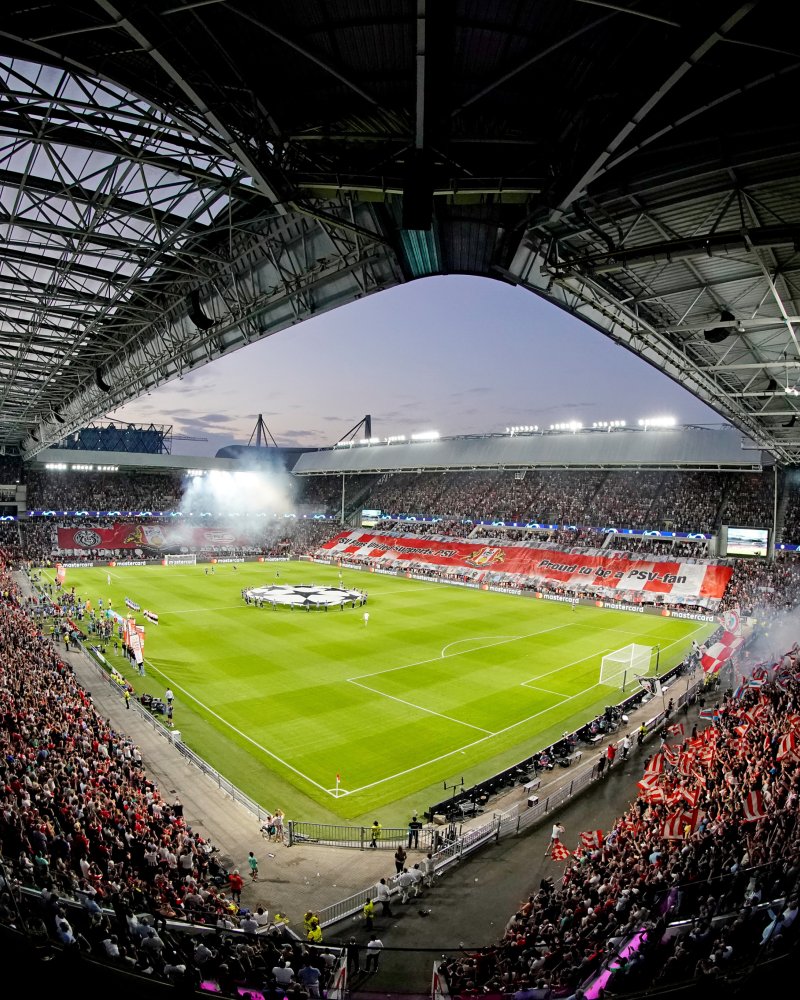
The history of PSV
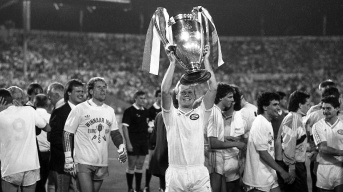
Origin
The Philips Sports Association was officially founded on Aug. 31, 1913, as a sports association for and by employees of Philips. It is the festive end of a large Philips sports festival celebrating one hundred years of Dutch independence. Several sports can be played. Football is one of them.
Three years earlier, on December 12, 1910, the foundations are laid for what will grow into today's football club PSV. Employees of Philips founded the Philips Elftal. This team plays its first match on Frederiklaan in early 1911. It is exactly the location where the Philips Stadium now stands. Unique in the Netherlands. The five-year-old Frits Philips, who later becomes a club icon, kicks off the match against Hollandia from Woensel.
The team joins the Philips Sport Vereniging on Oct. 22, 1913, but retains its own name until Oct. 31, 1916. In the early years, PSV remains a club for employees of the N.V. Philips' Gloeilampenfabrieken. It is not until 1928 that people from outside the company are allowed to play sports at PSV.
PSV's football division has then been playing in the Dutch league since 1914 and in less than a decade has risen to the highest division of Dutch football. From 1926, the club played continuously at the highest level. In 1955, professional football is introduced in the Netherlands and shortly thereafter PSV is the first Dutch participant in the Coupe Européenne, the forerunner of today's UEFA Champions League.
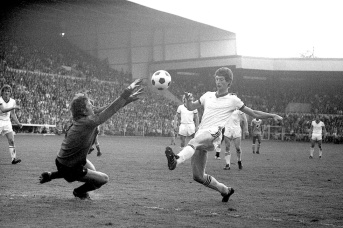
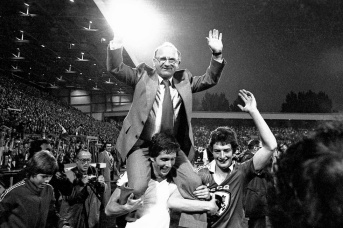
Successes
PSV conquered several awards even before the introduction of professional football. The now impressive list of honors begins in 1929. PSV becomes champion of the Netherlands for the first time. The first national title in professional football is won in 1963, through a 5-2 victory over Ajax. Besides 24 national titles, 11 national cups and 14 Super Cups, PSV also establishes its name outside the Netherlands. From 1974, the club plays continuously in a European context. The first highlight is winning the UEFA Cup in 1978 led by Willy van der Kuijlen. It is the beginning of a new period for the club. From then on, a team is built that reaches its peak in the 1980s with many top international players. Between 1986 and 1992, PSV becomes the national champion six times and wins the KNVB Cup three times.
The Golden Year | 1987-1988
The absolute highlight in club history is the 1987-1988 season. Under the leadership of coach Guus Hiddink, PSV wins the European Cup I. The final is in Stuttgart against Benfica. The match is decided by taking penalty kicks. Goalkeeper Hans van Breukelen stops António Veloso's decisive penalty kick and PSV can call itself the best club in Europe. It is the crown on the most successful season in club history. In addition to the biggest prize in European football, the club also wins the national title and the KNVB Cup. It is therefore rightfully the golden year in club history.
Nursery for stars
The success gives PSV's international reputation a huge boost. From that moment on, great talents in global football come to Eindhoven to develop into the greats of the world. That starts with Brazilians Romário and Ronaldo. Both are brought in based on their own scouting activities and grow into world class players. The list of top international players who subsequently play and played football at PSV is long. Cocu, Van Nistelrooy, Robben, Van Bommel, Alex, Gomes, Farfán, Mertens, Wijnaldum, Guardado, Xavi, De Jong, Lozano: these are some of the celebrities who are part of the club's rich history.
A decade ago, PSV decided to intensify investments in its own Academy. The club embraced its status as a breeding ground for stars and decided to make it a success formula. Top players like Afellay, Memphis, Malen, Madueke and Gakpo were all molded at PSV Campus De Herdgang. In 2013-2014, Young PSV, alongside a number of other Jong teams, joined the First Division. Since then, PSV's talents have come into early contact with professional football. The step to the A-selection became smaller. Something that contributed to the fact that an increasing part of the main squad consisted of self-trained players.
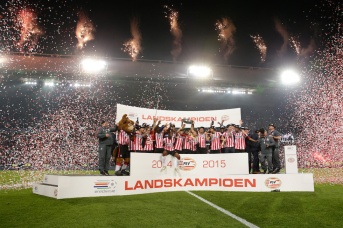
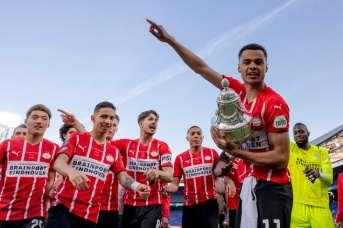
Mister PSV
No player will ever match Van der Kuijlen's achievements at PSV. The striker is and will forever remain the top scorer of PSV and the Eredivisie. For eighteen seasons, 528 league games, he has worn the red and white of PSV, which rightfully earns him the title 'Mister PSV'. An honorary title that Van der Kuijlen, humility itself, also carries with verve after his active career, first as youth and assistant coach and later as scout and club icon. Never does Skiete Willy, of course also Member of Merit of PSV, feel too big for anything. His most important trademark will forever remain cutting, shooting, scoring, especially a lot of scoring; Willy van der Kuijlen is forever Mister PSV.
"The most beautiful color is that of grass.
Van der Kuijlen grew up in Helmond, where he created a furor in the first team of HVV at a young age. In 1963-1964, Van der Kuijlen made his name by scoring 31 goals in 26 matches for the first division club. In the Van der Kuijlen household, people had been convinced of Willy's talent for some time. His father orders him to abandon his training as a tiler and try to earn his money as a professional football player, something that is not yet a done deal at that time. PSV wants him a season earlier, but after his goal-scoring exploits for the Helmond amateurs, the Philips Stadium is completely convinced. The whole of the Netherlands wants to bind "the Brabant football wonder" to them, but he ultimately chooses PSV.
Frits Philips
'Mister Frits' runs like a thread through PSV's history. As a five-year-old, Frits Philips (of April 16, 1905) performed the kickoff in 1911 at the first match of the Philips Elftal, the forerunner of today's PSV. He was the son of co-founder Dr. Anton Philips and died in 2005 at the age of 100. Until then, he experienced the rich history up close. He attended the official founding on August 31, 1913, and was actively involved with the club as a supporter throughout his life.
Legendary
Mr. Frits is legendary in many ways; he was the last Philips at the top of the company. Already at age 25, after graduating with a degree in mechanical engineering, father Anton gave him full managerial responsibility as a company director. First as assistant company manager, later as managing director. In World War II, circumstances put him in charge of the Philips factories in occupied territory as a barely 35-year-old. His father and the entire staff had sought refuge in England. Frits did not want to abandon his staff. In 1941, a spontaneous but massive popular celebration arose around the 75th anniversary of Philips. It was not the first time Frits went against the Germans. The occupiers threatened him with death several times for his lack of cooperation. He even ended up in prison, was released, but soon had to go into hiding until the liberation of Eindhoven in September 1944. From 1961 he was the face of the multinational until his retirement in 1971. He then served as chairman of the Supervisory Board until 1977.
Involvement
Because of his involvement with the city of Eindhoven and his easy contact with people from all walks of life, he became an icon of the city, of which he became an Honorary Citizen. On April 16, 2005, all of Eindhoven celebrated his 100th birthday, showing once again how popular he was among PSV supporters, city residents and (former) Philips people.
Frits Philips experienced eighteen PSV national titles as a supporter. His last was in 2005, in the summer before his death. After the presentation of the championship trophy, captain Mark van Bommel walked into the stands to show the trophy with the club icon to the audience. A memorable moment in the history of the club and Mister Frits. Later that year, on December 5, he died at his estate De Wielewaal. In 2007, a beautiful statue of Mister Frits was unveiled on the Market Square in Eindhoven.
